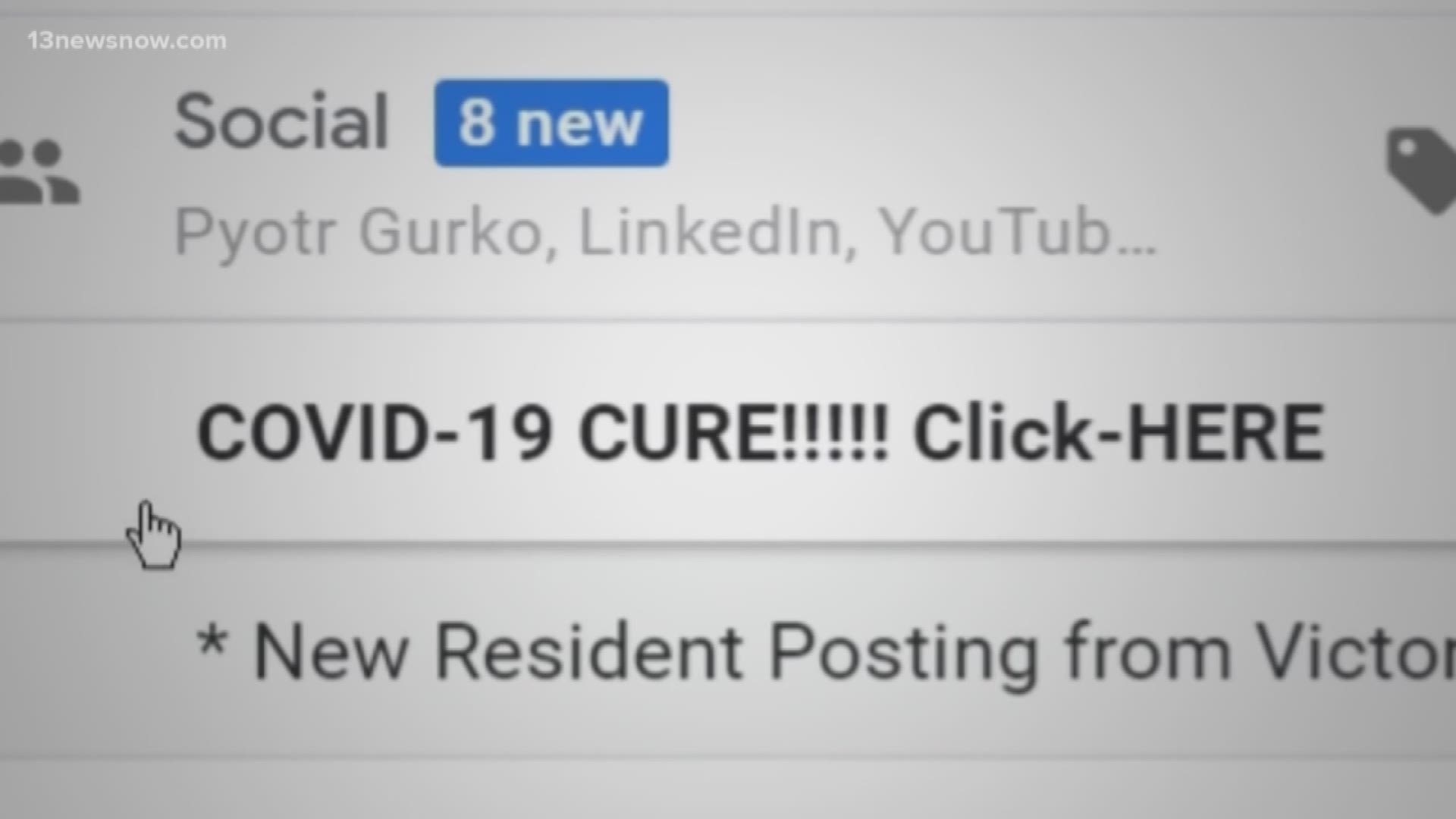NORFOLK, Va. — The Better Business Bureau is sending a warning about scam artists trying to take advantage of vulnerable people during the COVID-19 pandemic.
The BBB's Marketing and Communications Manager Jamie Howell says they’ve already gotten reports of scams right here in Hampton Roads.
“As soon as they see panic or any kind of opportunity, scammers will jump on it and say: Oh, I can profit off this," Howell said.
Howell said a popular scam going around right now is a "miracle cure."
You might see something on social media or a website selling a secret vaccine or special pill – it might even have testimonials.
“We’re hearing anything from sea moss to turmeric to ginger, to holding a blow dryer and spray bottle to your nose cavities,” Howell explained. “If an ad on FB or your e-mail says we have the cure, we have the cure. No one has the cure right now.”
Another big scam? Fake officials calling you about a government stimulus check.
“People are getting phone calls and emails and texts saying: Oh, you may qualify for more, depending on your situation. Give us your information and we’ll check for you,” Howell said.
“We work on behalf of 'So-called company,' we hear that you might be eligible for $1,000, up to $14,000. And of course, in a time of crisis people are like – I can get more money? Let me see.”
Here’s a heads up: The BBB says never give out your personal information if you’re not one hundred percent sure the call or e-mail is legitimate.
Also, keep an eye out for fake charities. A red flag is a misspelled name.
“It could be 'United-dash-Way-dot' or or 'Unitedd - with two D’s - way-dot-org'," she said. "Somehow they’re going to try to use the name of an official charity or even make up their own and say they are for a specific cause.”
And with more and more people out of work, there are scammers preying on the unemployed.
“You should not have to pay to get a job," Howell said. "If you get an e-mail saying, 'Oh you can work for us, just pay us this amount for a sign-on fee or this is a head-hunting fee,' unless this is actual headhunting company, you’re not going to be paying to get a job.”
If you’ve gotten a suspicious phone call or e-mail that sounds fishy, you’re encouraged to report it on the BBB’s website.
They also have more information on common scams.

